Understanding the Importance of Incorporating Low Calorie Foods into Your Diet
Maintaining a healthy and balanced diet is crucial for overall well-being, and one key aspect of this is incorporating low calorie foods into our daily meals. In today’s world, where obesity rates are on the rise, understanding the importance of consuming low calorie foods can greatly contribute to weight management and improved health.
Low calorie foods are those that provide essential nutrients while containing fewer calories per serving compared to their higher calorie counterparts. By incorporating these foods into our diet, we can reduce our overall calorie intake without compromising on nutrition.
The significance of including low calorie foods in our meals cannot be overstated. Not only do they help in managing weight, but they also promote better digestion, enhance energy levels, and reduce the risk of chronic diseases such as heart disease and diabetes.
In this section, we will explore the various benefits of consuming low calorie foods as part of a healthy diet. We will also delve into different types of low calorie options available and provide practical tips on how to incorporate them into your daily routine.
By understanding the importance of incorporating low calorie foods into your diet, you can take proactive steps towards achieving a healthier lifestyle and maintaining a balanced weight. So let’s dive in and discover how these nutrient-rich yet low-calorie options can positively impact your overall well-being.
Top 10 Low Calorie Foods for a Healthy and Balanced Diet
Table of Contents
Cucumbers: The Ultimate Hydrating and Low Calorie Snack
Cucumbers are often overlooked when it comes to healthy snacking, but they truly are the ultimate hydrating and low-calorie snack. Packed with water content, cucumbers provide a refreshing and satisfying crunch while keeping you hydrated.
With their high water content of over 95%, cucumbers are an excellent choice for those looking to stay hydrated throughout the day. Staying properly hydrated is essential for maintaining overall health and well-being, as it helps regulate body temperature, aids in digestion, and supports healthy skin.
In addition to their hydrating properties, cucumbers are also incredibly low in calories. With only about 16 calories per cup, they make for a guilt-free snack option that can be enjoyed anytime. Whether you’re trying to maintain a healthy weight or simply looking for a nutritious alternative to high-calorie snacks, cucumbers fit the bill perfectly.
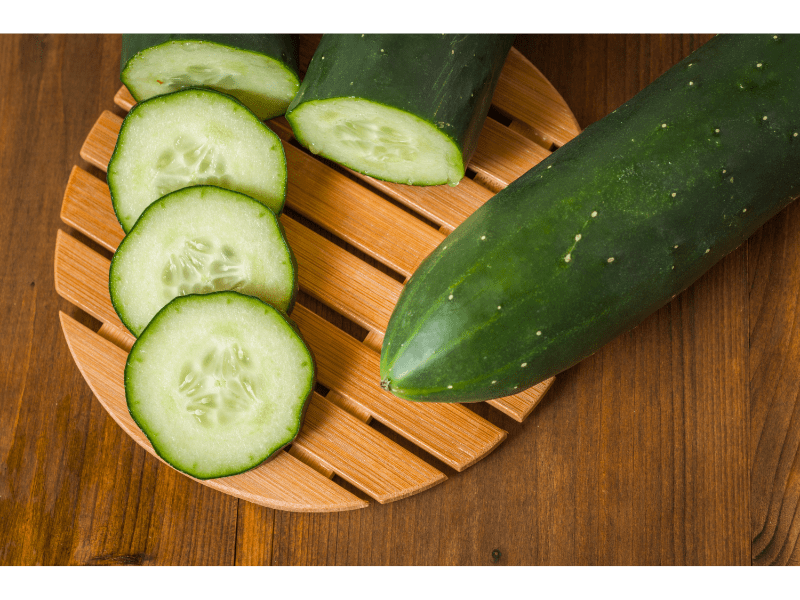
Not only do cucumbers offer hydration and low calorie benefits, but they also provide other important nutrients. They are a good source of vitamin K, which plays a crucial role in blood clotting and bone health. Cucumbers also contain vitamin C, an antioxidant that supports immune function and collagen production.
To incorporate more cucumbers into your diet as a healthy snack option, try slicing them up and enjoying them plain or with a sprinkle of sea salt for added flavor. You can also add cucumber slices to salads or use them as dippers with hummus or Greek yogurt-based dips.
Cucumbers offer a multitude of benefits as the ultimate hydrating and low-calorie snack. Their high water content keeps you hydrated while their minimal calorie count makes them an ideal choice for those watching their weight. So next time you’re craving a refreshing snack, reach for some crisp and delicious cucumbers!
Spinach: Packed with Nutrients and Surprisingly Low in Calories
Spinach is a leafy green vegetable that has gained popularity for its remarkable nutritional profile. It is considered one of the most nutrient-rich foods available, while also being surprisingly low in calories.
Packed with essential vitamins and minerals, spinach offers a wide range of health benefits. It is an excellent source of vitamin K, which plays a crucial role in blood clotting and bone health. Additionally, spinach is rich in vitamins A and C, both known for their immune-boosting properties and ability to promote healthy skin.
What makes spinach particularly appealing to those watching their calorie intake is its low-calorie content. With only about 23 calories per 100 grams, it provides a satisfying volume of food without adding excessive calories to your diet. This makes it an ideal choice for individuals looking to maintain or lose weight.

Furthermore, spinach contains high levels of dietary fiber, aiding digestion and promoting feelings of fullness. This can be beneficial for managing appetite and preventing overeating.
Incorporating spinach into your meals can be done in various ways. It can be enjoyed raw in salads or added to smoothies for an extra nutritional boost. Spinach can also be cooked as a side dish or incorporated into main courses such as soups, stir-fries, or pasta dishes.
Overall, spinach stands out as a nutrient-dense vegetable that offers numerous health benefits while being low in calories. Its versatility in cooking makes it easy to incorporate into any diet, making it a wise choice for those seeking optimal nutrition without sacrificing taste or satiety.
Watermelon: Refreshing and Deliciously Low in Calories
Watermelon is not only a delicious and refreshing fruit, but it also comes with the added benefit of being low in calories. For those looking to maintain a healthy diet or lose weight, incorporating watermelon into their meals can be a smart choice.
One of the key advantages of watermelon is its low calorie content. With just around 30 calories per 100 grams, it is considered one of the lowest calorie fruits available. This makes it an excellent option for those who want to indulge in a sweet treat without worrying about excessive calorie intake.
In addition to being low in calories, watermelon also offers hydration benefits. With its high water content (approximately 92% water), it helps keep the body hydrated and aids in maintaining optimal bodily functions. Staying hydrated is crucial for overall health and well-being, as it supports various bodily processes such as digestion, circulation, and temperature regulation.
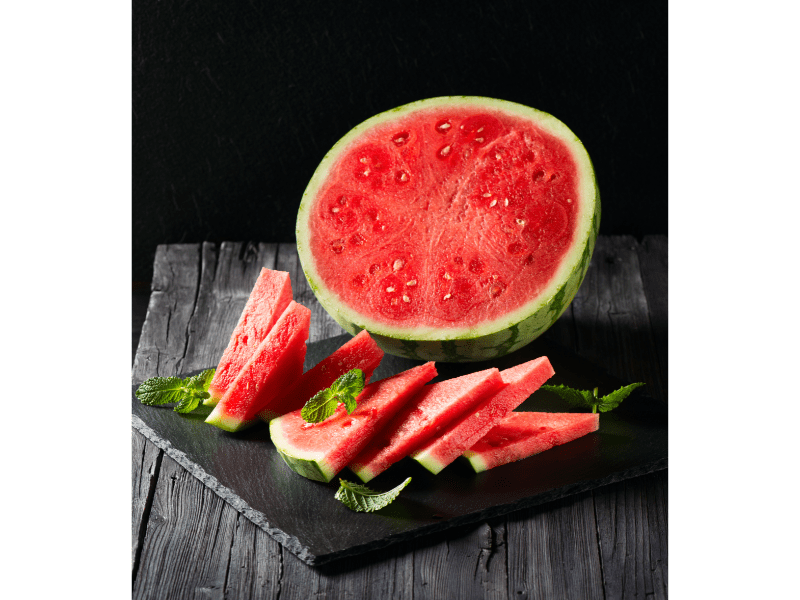
Furthermore, watermelon is packed with essential vitamins and minerals such as vitamin C and potassium. Vitamin C acts as an antioxidant that helps boost the immune system and protect against cell damage, while potassium plays a vital role in maintaining proper heart function and regulating blood pressure.
Whether enjoyed on its own or added to salads, smoothies, or desserts, watermelon provides a guilt-free way to satisfy your sweet tooth while staying hydrated and obtaining essential nutrients. So next time you’re craving something refreshing yet low in calories, reach for some juicy watermelon slices!
Cauliflower: A Versatile and Nourishing Low Calorie Vegetable
Cauliflower is a versatile and nourishing vegetable that has gained popularity in recent years, particularly among those seeking low calorie alternatives to starchy foods. As a member of the cruciferous vegetable family, cauliflower offers numerous health benefits while being incredibly versatile in the kitchen.
One of the main reasons why cauliflower has become so popular is its low calorie content. With just 25 calories per cup, it provides a satisfying and nutritious option for those looking to reduce their calorie intake. This makes it an excellent choice for weight management and maintaining a healthy diet.
In addition to being low in calories, cauliflower is also rich in vitamins and minerals. It is a great source of vitamin C, vitamin K, folate, and potassium. These nutrients play vital roles in supporting immune function, promoting bone health, and maintaining overall wellbeing.
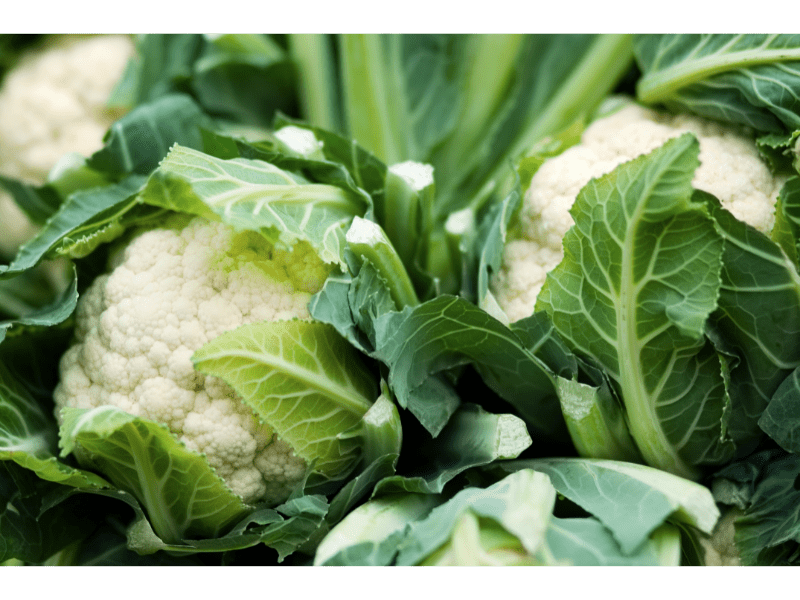
Cauliflower’s versatility shines through when it comes to cooking. It can be used as a substitute for starchy foods like rice or potatoes by simply grating or pulsing it into small pieces. This makes it an ideal ingredient for those following low carb or keto diets.
Moreover, cauliflower can be roasted, steamed, sautéed, or even mashed to create delicious dishes that are both nutritious and satisfying. From cauliflower rice to cauliflower pizza crusts and even buffalo cauliflower “wings,” there are countless creative ways to incorporate this vegetable into your meals.
As part of the cruciferous vegetable family, cauliflower also offers unique health benefits. Studies have shown that consuming cruciferous vegetables may help lower the risk of certain types of cancer due to their high content of phytochemicals such as sulforaphane.
Cauliflower is not only a versatile ingredient but also a nourishing low calorie vegetable that provides numerous health benefits. Whether you are looking for an alternative to starchy foods or simply want to incorporate more nutrient-rich vegetables into your diet, cauliflower is certainly worth considering as a delicious and nutritious addition to your meals.
Chicken Breast: Lean Protein for a Satisfying Meal with Fewer Calories
Chicken breast is a lean protein source that offers a satisfying and nutritious meal with fewer calories. It is widely recognized as a healthy choice for those looking to maintain or lose weight.
When it comes to meat options, chicken breast stands out due to its low fat content. It is particularly popular among fitness enthusiasts and health-conscious individuals because it provides high-quality protein without adding excessive calories or unhealthy fats.
Not only is chicken breast low in calories, but it also contains essential nutrients such as vitamins B6 and B12, niacin, selenium, and phosphorus. These nutrients play crucial roles in maintaining overall health and well-being.

In addition to its nutritional benefits, chicken breast is versatile in the kitchen. It can be grilled, baked, sautéed, or added to various dishes like salads, stir-fries, and sandwiches. Its mild flavor allows for easy customization with different seasonings and marinades.
For those seeking a satisfying meal that supports their weight management goals without compromising on taste or nutrition, chicken breast serves as an excellent choice. Incorporating this lean protein source into your diet can contribute to a balanced eating plan that promotes optimal health.
Greek Yogurt: Creamy and High in Protein While Being Low in Calories
Greek yogurt has gained popularity in recent years due to its creamy texture, rich taste, and numerous health benefits. As a low-fat dairy product, it is an excellent choice for those looking to maintain a healthy diet while still enjoying a delicious treat.
One of the key advantages of Greek yogurt is its high protein content. Compared to regular yogurt, Greek yogurt contains significantly more protein per serving. This makes it an ideal option for individuals seeking high-protein snacks to support their fitness goals or simply increase their daily protein intake.
In addition to being a great source of protein, Greek yogurt is also low in calories. This makes it an appealing choice for those who are watching their caloric intake or trying to lose weight. By choosing Greek yogurt as a snack or incorporating it into meals, individuals can enjoy the satisfaction of a creamy and flavorful treat without consuming excessive calories.
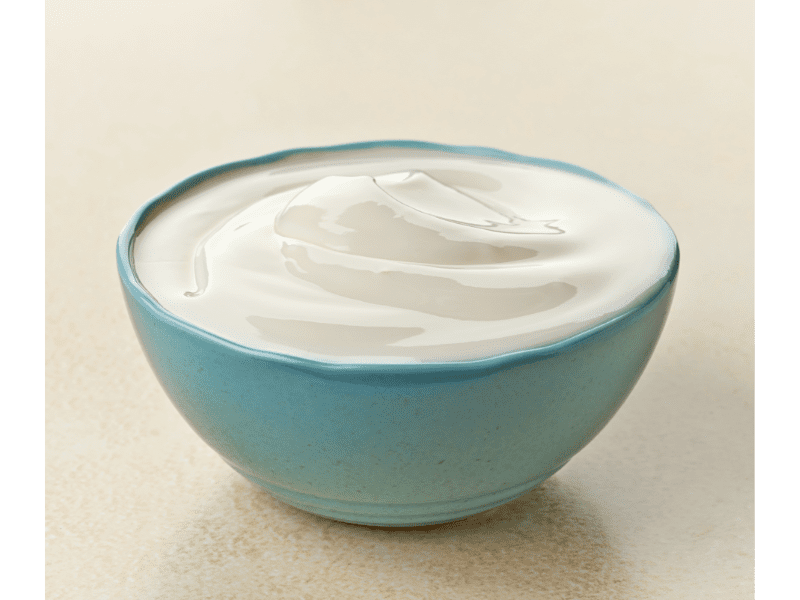
Furthermore, Greek yogurt offers various nutritional benefits, including essential vitamins and minerals such as calcium and vitamin B12. These nutrients contribute to maintaining strong bones and supporting overall health.
Greek yogurt stands out as a versatile food option that combines creaminess with high protein content while remaining low in calories. Whether enjoyed on its own or used as an ingredient in recipes, this nutritious dairy product provides a satisfying and healthy addition to any diet.
Berries: Nature’s Sweet Treats with Minimal Calories
Berries are not only delicious but also offer numerous health benefits. In particular, wild berries such as strawberries, blueberries, and raspberries are known for their high antioxidant content. These tiny fruits pack a powerful punch when it comes to their nutritional value.
Strawberries, for example, are rich in vitamin C and manganese. They are also a great source of antioxidants called anthocyanins, which give them their vibrant red color. Blueberries are another popular choice that is not only low in calories but also packed with vitamins and minerals. They contain antioxidants like flavonoids that have been linked to various health benefits including improved brain function.
Raspberries, on the other hand, are known for their high fiber content and vitamin C. They also contain ellagic acid, a compound with antioxidant properties that may have anti-inflammatory effects.
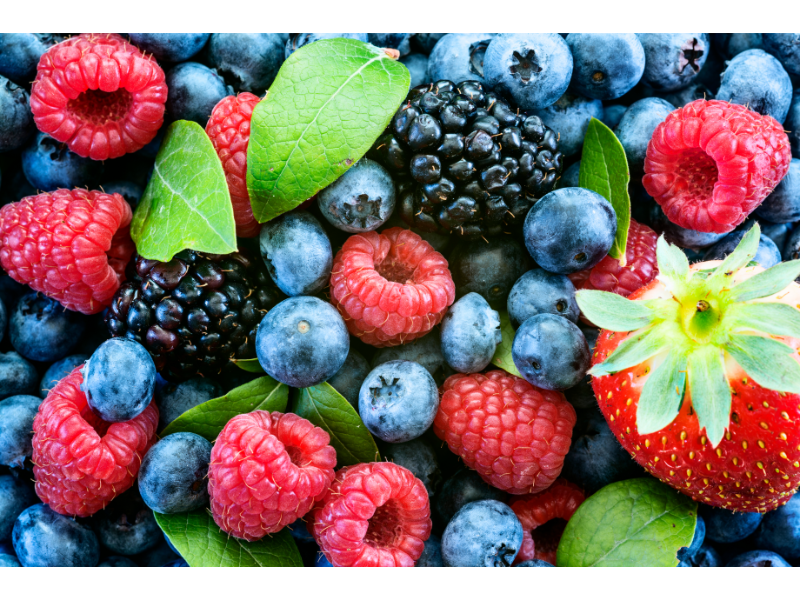
These berries can be enjoyed on their own or added to various dishes such as smoothies, salads, or desserts. Not only do they provide a burst of flavor but they also offer minimal calories compared to other sweet treats.
Wild berries like strawberries, blueberries, and raspberries are not just nature’s sweet treats; they are also packed with antioxidants that can benefit our overall health. So next time you’re craving something sweet yet healthy, reach for these delicious berries!
Egg Whites: Low Calorie and Nutrient-Dense Breakfast Option
Egg whites have gained popularity as a low calorie and nutrient-dense breakfast option, especially for those looking to maintain a healthy and balanced diet. With their high protein content and minimal fat and calories, egg whites offer a satisfying meal that can keep you feeling full throughout the morning.
One of the key advantages of egg whites is their low calorie count. Compared to whole eggs, which contain both the yolk and the white, egg whites are significantly lower in calories. This makes them an ideal choice for individuals who are watching their caloric intake or looking to shed some pounds.
In addition to being low in calories, egg whites are also packed with essential nutrients. They are an excellent source of high-quality protein, containing all nine essential amino acids that our bodies need for optimal functioning. Protein is not only important for muscle repair and growth but also helps to increase satiety levels, making it easier to control cravings and manage weight.
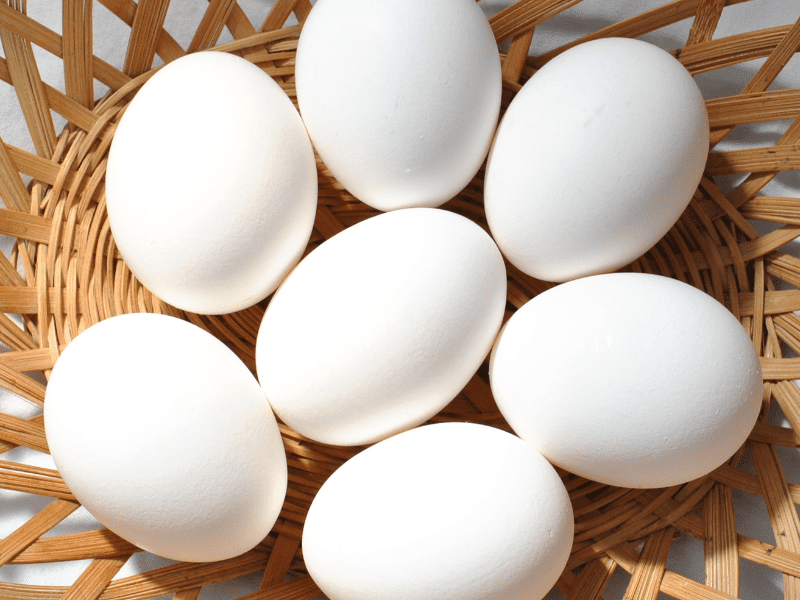
Furthermore, egg whites contain no cholesterol or saturated fat. By opting for egg whites instead of whole eggs, individuals can enjoy the benefits of protein without worrying about consuming excessive amounts of unhealthy fats.
There are numerous ways to incorporate egg whites into your breakfast routine. From omelets and scrambles to frittatas and breakfast burritos, the versatility of egg whites allows you to experiment with various flavors and ingredients while keeping your meal light and nutritious.
If you’re searching for a low calorie yet nutrient-dense breakfast option that is rich in protein, look no further than egg whites. Their high protein content combined with their minimal fat and calorie count make them an excellent choice for individuals seeking a healthy start to their day.
Broccoli: Fiber-Rich and Low in Calories for a Healthy Digestive System
Broccoli, a cruciferous vegetable, is not only delicious but also incredibly beneficial for maintaining a healthy digestive system. It is known for being both low in calories and high in fiber, making it an excellent choice for those watching their weight and aiming to improve their digestive health.
One of the key advantages of incorporating broccoli into your diet is its low calorie content. With only around 55 calories per cup, it can be enjoyed guilt-free as part of a balanced meal or snack. This makes it an ideal option for individuals looking to manage their weight while still providing essential nutrients to support overall health.
Furthermore, broccoli is rich in dietary fiber, which plays a crucial role in promoting healthy digestion. Fiber aids in regulating bowel movements and preventing constipation by adding bulk to the stool and facilitating its smooth passage through the digestive tract. By including high-fiber foods like broccoli in your diet, you can help maintain regularity and support a healthy digestive system.
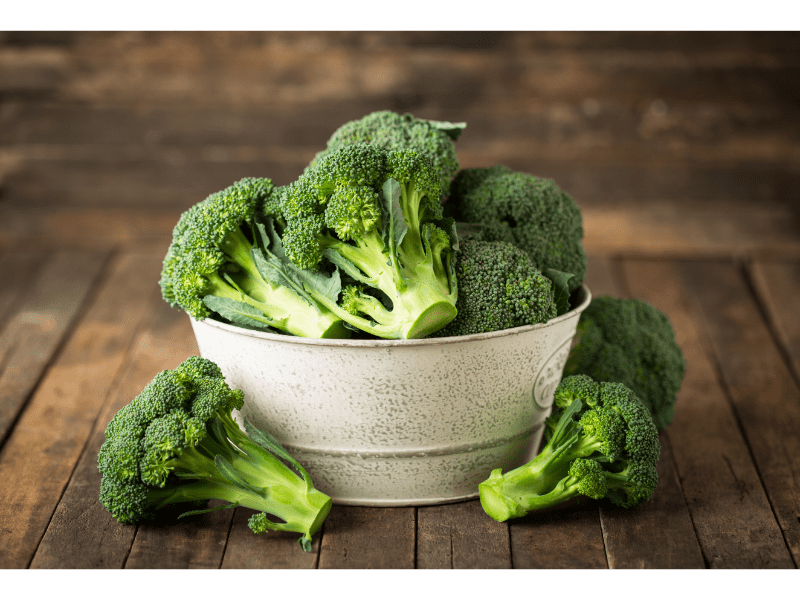
Additionally, the fiber found in broccoli acts as a prebiotic, providing nourishment for beneficial gut bacteria. These friendly bacteria play a vital role in breaking down food particles and absorbing nutrients from our diet. By consuming fiber-rich foods like broccoli regularly, we can promote the growth of these beneficial bacteria and enhance our overall gut health.
Incorporating broccoli into your meals can have significant benefits for your digestive system. Its low calorie content combined with its high fiber content makes it an excellent choice for those looking to maintain or improve their digestive health. So go ahead and add this versatile vegetable to your shopping list – your digestive system will thank you!
Shrimp: Deliciously Low Calorie Seafood Rich in Omega-3 Fatty Acids
Shrimp is not only a delicious seafood option, but it is also a great choice for those looking to maintain a healthy diet. With its low calorie content and high nutritional value, shrimp stands out as a favorable protein source.
One of the key benefits of consuming shrimp is its rich omega-3 fatty acid content. Omega-3 fatty acids are essential fats that play a crucial role in maintaining heart health and reducing inflammation in the body. These healthy fats have been linked to various health benefits, including improved brain function and reduced risk of chronic diseases.
In addition to being a good source of omega-3 fatty acids, shrimp is also low in calories. This makes it an ideal choice for individuals who are watching their calorie intake or trying to lose weight. With approximately 84 calories per 100 grams, shrimp provides a satisfying meal while keeping the calorie count in check.

Furthermore, shrimp contains an array of other essential nutrients such as vitamins D and B12, selenium, and iodine. These nutrients contribute to overall health and well-being.
Whether enjoyed grilled, sautéed, or added to salads and stir-fries, shrimp offers both taste and nutrition. So next time you’re looking for a healthy seafood option that’s low in calories but rich in omega-3 fatty acids and other beneficial nutrients, consider adding shrimp to your menu.
Enjoying a Variety of Low Calorie Foods for a Healthier Lifestyle
In conclusion, incorporating a variety of low calorie foods into your diet can greatly contribute to a healthier lifestyle. By focusing on healthy eating and weight loss, you can achieve your goals while still enjoying delicious and nutritious foods.
It’s important to remember that a balanced diet is key. Including a wide range of fruits, vegetables, lean proteins, whole grains, and healthy fats ensures that you are getting all the necessary nutrients while keeping your calorie intake in check.
By making conscious choices and opting for low calorie alternatives, you can still indulge in flavorful meals without compromising on taste or nutrition. Experimenting with different recipes and cooking methods can also help keep your meals exciting and enjoyable.
Remember that sustainable weight loss and overall health are achieved through long-term habits rather than quick fixes. Embracing a variety of low calorie foods as part of a balanced diet will not only support your weight loss journey but also promote overall well-being.
So go ahead and explore the world of nutritious low calorie foods – discover new flavors, try new recipes, and enjoy the benefits of a healthier lifestyle.
Also Read: How Low Calorie Foods For A Healthy Diet Can Improve Your Wellbeing


5 thoughts on “10 Mighty, Low Calorie Foods for a Healthier You : Trimming Triumph”